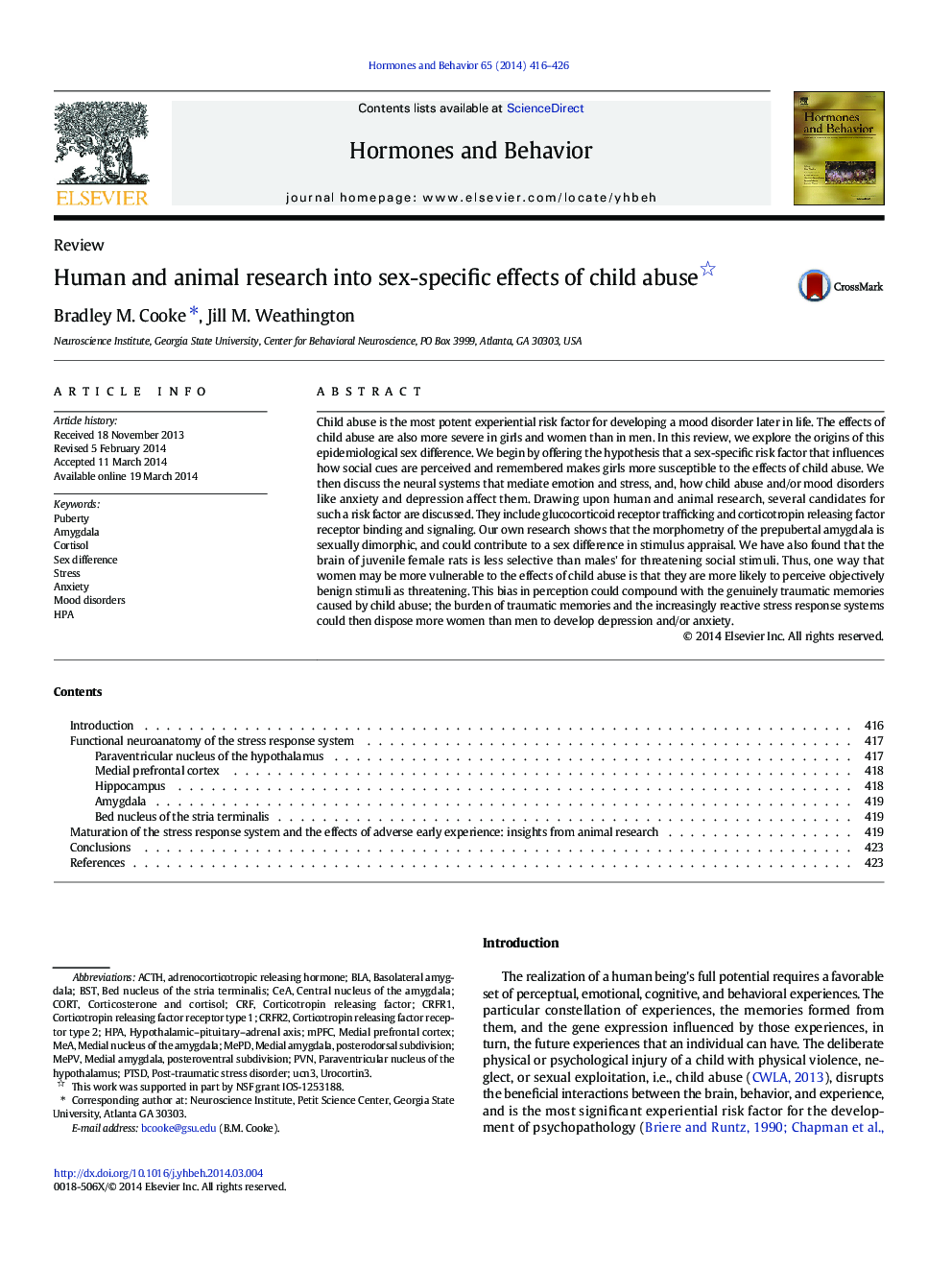| کد مقاله | کد نشریه | سال انتشار | مقاله انگلیسی | نسخه تمام متن |
|---|---|---|---|---|
| 323411 | 540651 | 2014 | 11 صفحه PDF | دانلود رایگان |

• Men and women differ in their susceptibility to mood disorders such as anxiety and depression.
• Women are more likely than men to develop a mood disorder as the result of child abuse.
• The neural systems that mediate social stress are reviewed.
• Several potential risk factors that may contribute to sex-specific risk are described.
• Animal research suggests that one sex-specific risk factor may be in how social cues are appraised.
Child abuse is the most potent experiential risk factor for developing a mood disorder later in life. The effects of child abuse are also more severe in girls and women than in men. In this review, we explore the origins of this epidemiological sex difference. We begin by offering the hypothesis that a sex-specific risk factor that influences how social cues are perceived and remembered makes girls more susceptible to the effects of child abuse. We then discuss the neural systems that mediate emotion and stress, and, how child abuse and/or mood disorders like anxiety and depression affect them. Drawing upon human and animal research, several candidates for such a risk factor are discussed. They include glucocorticoid receptor trafficking and corticotropin releasing factor receptor binding and signaling. Our own research shows that the morphometry of the prepubertal amygdala is sexually dimorphic, and could contribute to a sex difference in stimulus appraisal. We have also found that the brain of juvenile female rats is less selective than males' for threatening social stimuli. Thus, one way that women may be more vulnerable to the effects of child abuse is that they are more likely to perceive objectively benign stimuli as threatening. This bias in perception could compound with the genuinely traumatic memories caused by child abuse; the burden of traumatic memories and the increasingly reactive stress response systems could then dispose more women than men to develop depression and/or anxiety.
Journal: Hormones and Behavior - Volume 65, Issue 4, April 2014, Pages 416–426